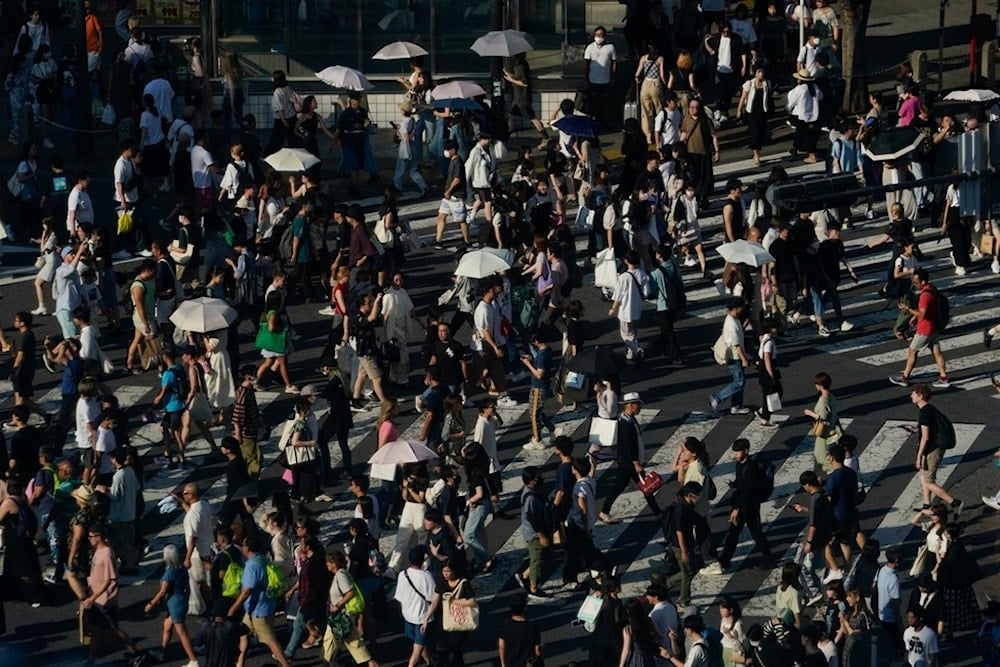Climate change drives record temperatures in Japan and South Korea
Japan and South Korea endured their hottest summer on record in 2025, as climate change drives global warming, extreme weather, and historic heatwaves.
-

People carry umbrellas to shield themselves from the sun as they walk across an intersection Monday, July 17, 2023, in Tokyo. (AP)
Both Japan and South Korea experienced unprecedented summer heat in 2025, according to their meteorological agencies.
The Japan Meteorological Agency reported average temperatures between June and August were 2.36°C above normal, marking the hottest summer since records began in 1898. It was also the country’s third consecutive summer of record-breaking highs.
South Korea recorded an average summer temperature of 25.7°C, the highest since data collection began in 1973, surpassing the previous record of 25.6°C set in 2024.
The intense heat is part of a broader trend scientists attribute to climate change. Heatwaves are becoming more frequent and severe, and 2025 added to the growing list of record temperatures worldwide.
Japan saw over 84,500 people hospitalized for heat-related illnesses between May and August, while South Korea declared a state of disaster in the city of Gangneung due to drought and falling reservoir levels.
Read more: Pacifism to readiness: Inside Japan’s shifting defense industry - FT
Rising global warming and extreme weather impacts
The effects of global warming are visible across Asia. In Japan, cherry blossoms are blooming irregularly due to warmer winters, while Mount Fuji’s snowcap appeared later than usual last year.
South Korea’s eastern coast faced prolonged drought, forcing water restrictions on residents. Officials shut off up to 75% of household meters in Gangneung to manage shortages.
For many residents, extreme weather has become part of daily life. In Tokyo, 80-year-old runner Masao Nakano said, “This is crazy. It’s all man-made, right? All the air-cons and power generation.”
These local experiences highlight how climate change impacts both health and cultural traditions, from hospitalizations to early cherry blossom blooms.
The United Nations recently warned that rising temperatures are cutting worker productivity, with output dropping 2–3% for every degree above 20°C. Data from the US National Oceanic and Atmospheric Administration shows Europe and Asia warming fastest since 1990.
Scientists emphasize that climate change is accelerating extreme weather events worldwide, with the 2025 heatwave in Japan and South Korea serving as a stark reminder of the urgent need for climate action.

 2 Min Read
2 Min Read









